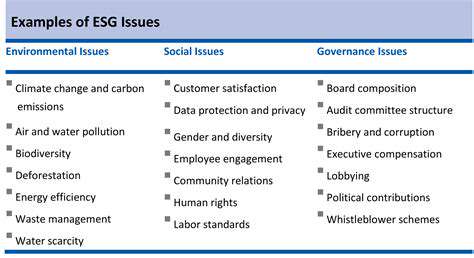Guide to Understanding Your Health Insurance Explanation of Benefits (EOB)
Understanding Claim Denials and Appeals
Understanding the Reasons for Claim Denials
Claim denials are a frustrating part of navigating health insurance. Understanding the reasons behind a denial is crucial for effectively appealing the decision. Common reasons for denials include pre-authorization requirements not met, the procedure or service not being covered under your plan, incorrect coding of the claim, or the provider not being in-network. Carefully reviewing the denial letter is essential to pinpoint the specific cause, as this will inform your appeal strategy.
Many denials stem from a lack of proper documentation or pre-authorization. For example, if a specialist's visit requires pre-approval and that step is missed, the claim will be denied. Understanding these specific reasons for denial is essential to preventing future issues.
Navigating the Claim Denial Letter
The claim denial letter is your roadmap to understanding why your claim was rejected. It typically outlines the specific reason for the denial, often citing specific clauses or exclusions from your policy. Pay close attention to the details, including the claim number, the date of service, and the reason code associated with the denial. This information is critical when preparing your appeal.
Familiarize yourself with the language used in the denial letter. Often, complex medical terminology is used. If you don't understand certain terms, consult with your insurance company or a healthcare professional to get clarification.
Appealing a Claim Denial: Your Rights and Options
You have the right to appeal a claim denial. Your insurance policy outlines the appeal process, which usually involves submitting supporting documentation and explaining why you believe the denial is incorrect. Familiarize yourself with the deadlines for appealing a claim as they vary by insurer.
Understanding your rights and options is paramount when dealing with a claim denial. Each insurance provider has its own specific appeal procedures. Carefully review your policy or contact customer service to know the specific steps you need to follow.
Gathering Supporting Documentation for Appeals
To strengthen your appeal, gather all relevant documentation, such as medical records, pre-authorization requests, and any supporting evidence explaining why the service was medically necessary. Clearly articulate the reasons why you believe the service was covered under your plan. Thorough documentation is key to a successful appeal.
Consider obtaining second opinions from other medical professionals to further support your case, particularly if the original denial was based on medical necessity or appropriateness of treatment.
Understanding Pre-Authorization and Prior Authorization
Pre-authorization (or prior authorization) is a crucial step in the insurance claim process. It is often required for certain procedures or services to ensure they are medically necessary and covered by your plan. Understanding pre-authorization requirements can help prevent claim denials.
Failing to comply with pre-authorization requests is a common cause of claim denials. Familiarizing yourself with the pre-authorization process and ensuring all necessary steps are followed will help avoid costly delays and potential denials.
The Role of Provider Networks and In-Network Providers
Your health insurance plan may have specific provider networks. Using an out-of-network provider can lead to claim denials or reduced reimbursement. Make sure you understand your plan's provider network and choose in-network providers whenever possible to avoid complications.
Choosing in-network providers can significantly impact the reimbursement process and help avoid claim denials. Carefully reviewing your policy's network details is important to understand the implications and avoid any potential issues.
Read more about Guide to Understanding Your Health Insurance Explanation of Benefits (EOB)
Hot Recommendations
- Tax Planning Tips for Homeowners [2025]
- How to Get Insurance for a Short Term Rental Property
- Understanding the Benefits of a Roth IRA
- How to Manage Business Debt After a Downturn
- How to Use a Barbell Investment Strategy
- Best Ways to Track Your Progress Towards Financial Freedom
- Tips for Managing Credit Card Rewards While Paying Off Balances
- Tax Planning Tips for Stock Options
- How to Plan for Retirement if You Didn't Save Early
- Guide to Managing Legal Debt




![Saving Money Tips for Travel [Beyond Flights/Hotels]](/static/images/30/2025-05/MaximizingAccommodationChoices3ABeyondHotelsandResorts.jpg)


![Budgeting for a Wedding [Tips & Breakdown]](/static/images/30/2025-06/NegotiatingandSeekingAffordableAlternatives.jpg)



